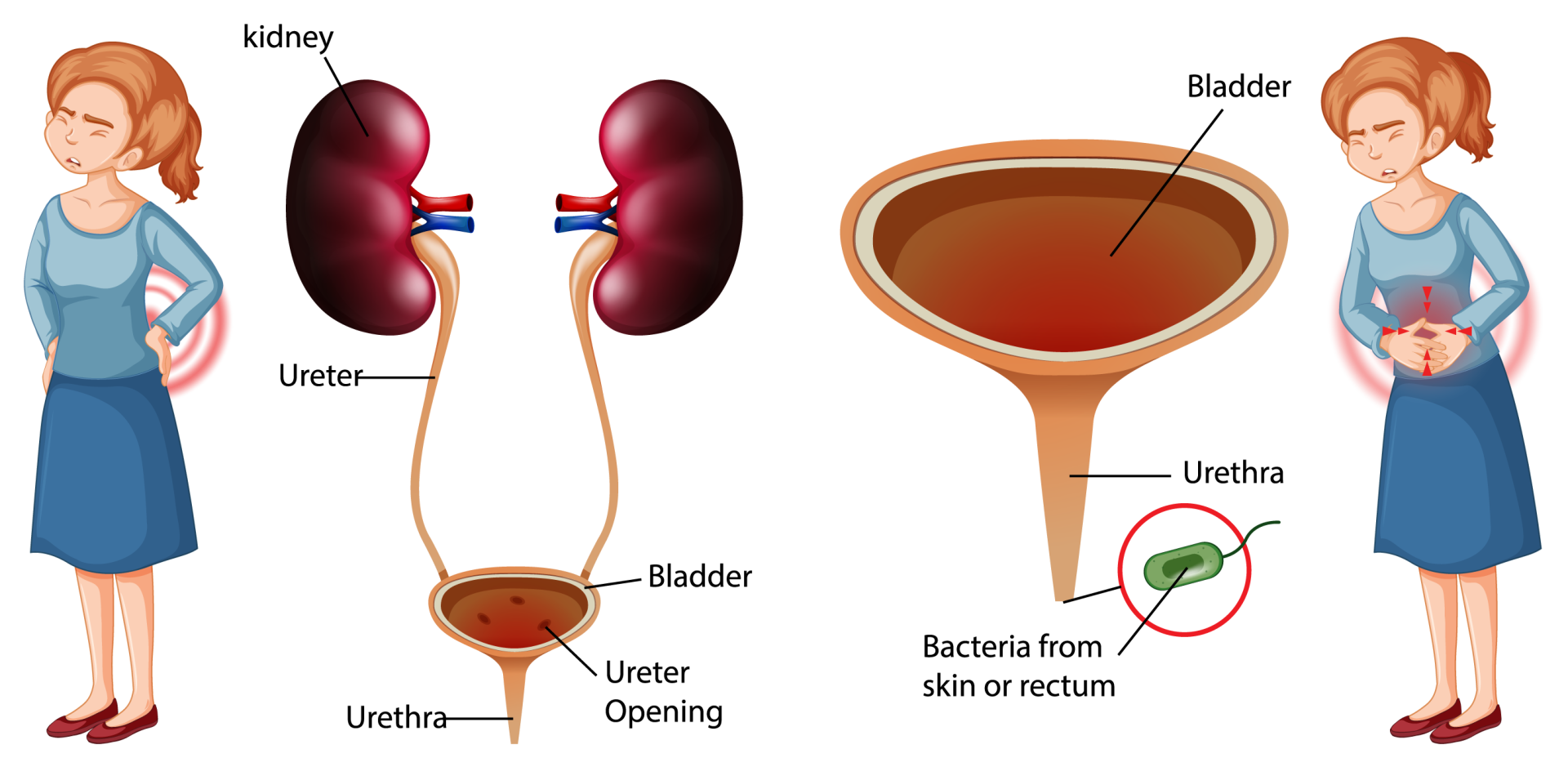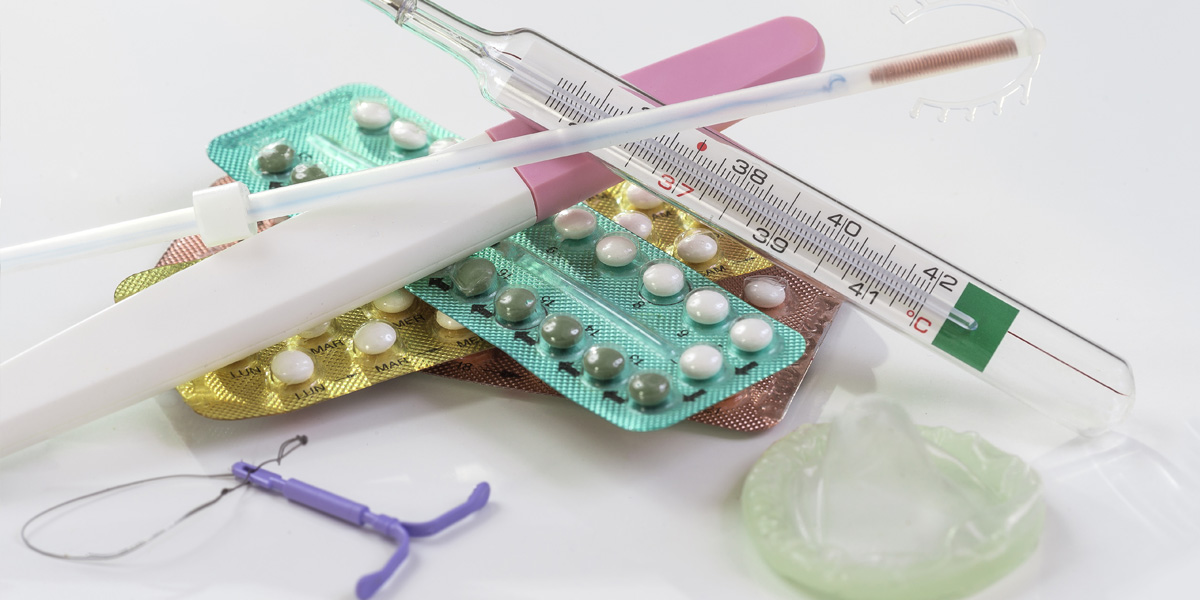The urinary tract infection (UTI) is a bother many of us know all too well, with women bearing the brunt of this common complaint. While they can be uncomfortable and inconvenient, they are usually treatable with antibiotics. UTIs don’t have to be a constant worry. Understanding the causes, spotting the symptoms early, and taking simple preventive measures can reduce your risk of infection.
What is a UTI?
A UTI occurs when bacteria enter the urinary tract and multiply. The urethra is the tube that carries urine from the bladder out of the body. If bacteria travel up the urethra and into the bladder, they can cause a bladder infection (cystitis). The infection can sometimes spread to the kidneys, causing a kidney infection (pyelonephritis).

Symptoms of a UTI
The symptoms of a UTI can vary depending on the severity of the infection. Some of the most noticeable symptoms include the following:
- Pain or burning when urinating
- Frequent urination
- Urgent need to urinate
- Cloudy or bloody urine
- Pelvic pain or pressure
- Fever
- Chills
- Nausea
- Vomiting
- Back pain
If you experience any of these symptoms, it’s important to see your Welia Health provider for diagnosis and treatment.
Causes of UTIs
UTIs are typically caused by bacteria on the skin or from near the anus entering the urethra. Once bacteria are introduced, they can move up the urinary tract and multiply inside your organs. These bacteria can come from a variety of sources, including:
- Escherichia coli (E. coli): This is the most common cause of UTIs. E. coli resides in the intestines but can migrate to the urinary tract and cause infection.
- Staphylococcus: Another common offender, this bacteria is often found on the skin. It can enter the body through the urethra, particularly when proper hygiene practices are not followed.
- Other bacteria: Less frequent causes of UTIs include Klebsiella, Proteus, and Enterococcus.
Several factors can increase your risk of developing a UTI, including:
- Anatomy: Women are more likely to develop UTIs than men because of the anatomy of their urinary tract. Women’s urethras are shorter than men’s, putting bacteria closer to the bladder.
- Sexual activity: Women who are sexually active are at a higher risk of UTIs, especially if they have a new sexual partner.
- Birth control: Use of Spermicide or a diaphragm can increase the risk of UTIs.
- Menopause: Post-menopause, the decrease in estrogen levels can alter the urinary tract, making it more susceptible to UTI infections.
- Age. Infants, young children and older adults are more prone to urinary tract infections.
- Diabetes: People with diabetes are more likely to develop UTIs.
- Immune system: A weakened immune system can make you more susceptible to UTIs.
- Urinary tract abnormalities: Certain urinary tract abnormalities, such as kidney stones or a narrowed urethra, can increase your risk of UTIs.
- Tight Clothing: Wearing tight-fitting pants or shorts can trap bacteria near the genitals, increasing the risk of them entering the urethra.
Prevention of UTIs
While it’s not always possible to prevent UTIs, there are several steps you can take to reduce your risk:
- Drink plenty of fluids: Staying hydrated can help flush bacteria out of your urinary tract.
- Urinate frequently: Don’t hold it in. Urinating frequently can help prevent bacteria from multiplying.
- Wipe from front to back: This prevents fecal bacteria from reaching the urethra.
- Avoid irritants: Highly scented soaps and feminine hygiene products, in some, can lead to irritation of the urethra, making you more susceptible to painful UTIs.
- Take care of your personal hygiene: Good personal hygiene reduces the risk of bacteria transfer.
- Empty your bladder completely: Before and after sex, empty your bladder to help flush out bacteria.
- Consider cranberry juice: Some studies have suggested that cranberry juice may help prevent UTIs.
- Talk to your doctor about medications: If you have recurrent UTIs, your doctor may prescribe antibiotics to prevent them.
Welia Health can help
If you think you may have a UTI, don’t hesitate to make that doctor’s appointment. Prompt treatment is important when it comes to kicking bacteria to the curb. While most UTIs can be treated effectively with antibiotics, untreated UTIs can lead to more serious complications.
Call Welia Health at 320.679.1313 or log into MyChart to make an appointment with a Women’s Health provider at any of our clinics – Mora, Pine City and Hinckley.
Additional resources
Understanding what causes UTIs, how to spot them early, and simple ways to prevent them can be a game-changer for your health. This knowledge can keep you feeling your best. Here are some resources to dive deeper:













